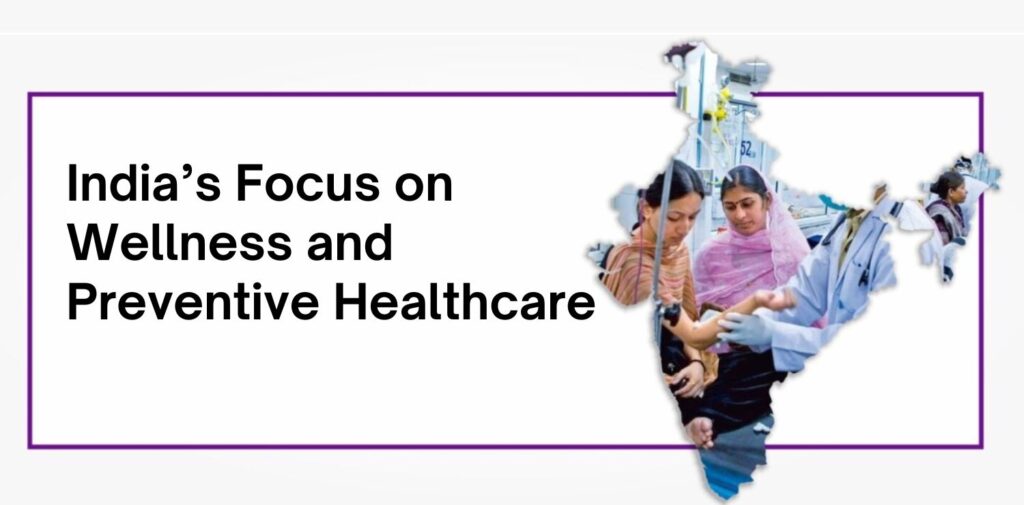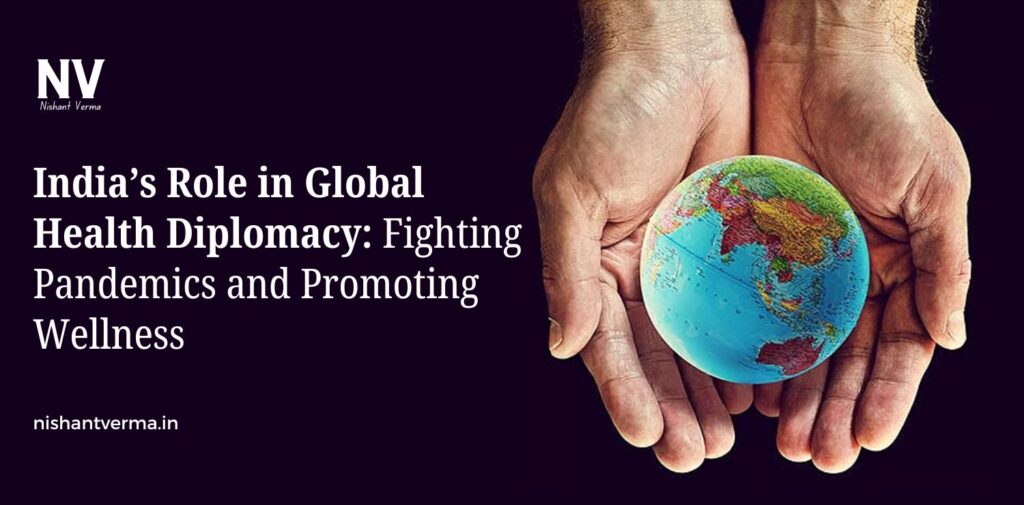India, one of the world’s most populous countries, plays a crucial role in shaping global health diplomacy. Over the years, India has not only focused on improving the health of its own citizens but has also made significant contributions to global health initiatives. From combating pandemics to promoting wellness and healthcare access, India’s leadership in the field of global health diplomacy has been pivotal. The country’s extensive healthcare network, expertise in pharmaceuticals, and active participation in international collaborations have helped it emerge as a key player in tackling global health challenges.
India’s Health Diplomacy: A Historical Perspective
India’s journey in global health diplomacy began long before the COVID-19 pandemic. The country has always played an important role in international health, both through the World Health Organization (WHO) and various other global initiatives. India’s commitment to public health has been deeply rooted in its policy of providing healthcare to all its citizens, irrespective of their socio-economic status. This focus has made India a powerful advocate for equitable healthcare, especially in developing nations.
In the past, India has been involved in various international health programs, offering expertise and resources for dealing with diseases such as polio, tuberculosis, and malaria. The country’s success in eradicating polio within its borders was a significant achievement and showcased its capability to lead public health campaigns on a global level. Today, India continues to contribute actively to international health diplomacy, helping other countries manage diseases and improve healthcare systems.

Fighting the COVID-19 Pandemic: India’s Leadership Role
The COVID-19 pandemic posed a major global challenge, and India’s response to the crisis demonstrated its leadership in global health diplomacy. As the pandemic spread across the world, India’s health sector took a proactive role in addressing the crisis, not only by managing its domestic response but also by providing assistance to other countries in need.
India emerged as the world’s “pharmacy” during the pandemic. It is one of the largest producers of vaccines and medicines, and its pharmaceutical industry became critical in the global fight against COVID-19. Indian companies like Serum Institute of India (SII) and Bharat Biotech developed vaccines that were distributed worldwide. The Serum Institute, in particular, became a vital player in the global vaccine supply chain, producing millions of doses of the AstraZeneca vaccine under the name Covishield.
Furthermore, India’s government extended support through initiatives such as the Vaccine Maitri program, which aimed at supplying COVID-19 vaccines to more than 70 countries. These efforts not only helped millions of people around the world but also solidified India’s position as a key player in global health diplomacy. India’s commitment to sharing vaccines, medical supplies, and expertise demonstrated the country’s dedication to global wellness and public health.
The Role of Indian Pharmaceuticals in Global Health
India’s pharmaceutical sector has long been one of the largest in the world. Known as the “pharmacy of the world,” India produces more than 50% of the global demand for vaccines and provides affordable medicines to countless countries. The country’s pharmaceutical industry has been essential in ensuring access to essential drugs and vaccines in low and middle-income nations.
During the COVID-19 pandemic, India’s pharmaceutical companies became critical to global health efforts. In addition to producing vaccines, Indian companies supplied low-cost generic drugs, including antiretroviral drugs for HIV/AIDS, cancer medications, and antibiotics. This ability to produce affordable medicines has been crucial in improving healthcare accessibility, especially in developing countries, and has reinforced India’s role as a global leader in health diplomacy.
India also plays a vital role in the World Trade Organization (WTO), advocating for affordable access to life-saving medicines through intellectual property negotiations. India’s position in the WTO has helped ensure that essential medicines remain affordable for people worldwide, particularly in low-income countries that cannot afford high-priced treatments.

Global Health Partnerships and Collaborations
India role in global health diplomacy is also shaped by its strong partnerships and collaborations with international organizations, governments, and non-governmental organizations (NGOs). India has actively participated in global health initiatives such as the Global Fund to Fight AIDS, Tuberculosis, and Malaria, and the GAVI Alliance, which works to improve vaccine access in low-income countries.
India’s participation in the WHO’s Global Health Initiatives has been instrumental in shaping international health policies, particularly in the areas of disease prevention, maternal and child health, and universal health coverage. India is also a key partner in the BRICS (Brazil, Russia, India, China, and South Africa) health initiatives, which focus on enhancing collaboration among emerging economies to tackle health challenges.
Through these partnerships, India has been able to share its expertise in public health, offer medical support to countries in need, and advocate for affordable healthcare solutions on a global scale. These collaborations have strengthened India’s role as a champion of global health and wellness, positioning the country as an influential player in international health diplomacy.
India’s Focus on Wellness and Preventive Healthcare
While India’s role in responding to pandemics like COVID-19 has been significant, the country has also been promoting long-term health solutions focused on wellness and preventive care. The Indian government has been increasingly investing in healthcare infrastructure and promoting wellness programs that target non-communicable diseases such as diabetes, heart disease, and hypertension.
India has adopted various health initiatives aimed at improving the overall wellness of its population. Programs like Ayushman Bharat aim to provide health insurance to millions of people, while campaigns to promote healthy lifestyles, such as yoga and balanced diets, are being actively promoted both domestically and internationally.
India’s ancient healthcare traditions, such as Ayurveda, Yoga, and traditional medicine, have gained global recognition. Through diplomatic channels and collaborations with international wellness organizations, India is positioning itself as a global leader in promoting traditional wellness practices. These practices are being embraced by people worldwide as part of a holistic approach to health.
The Indian government is also working to strengthen its healthcare system to provide better services for its citizens. As the country faces the growing burden of non-communicable diseases and lifestyle-related health issues, India’s focus on preventive care and wellness could set an example for other countries grappling with similar challenges.

Challenges and the Path Forward
While India has made great strides in global health diplomacy, there are still challenges to address. The country faces internal healthcare challenges, including insufficient infrastructure, disparities in healthcare access between rural and urban areas, and the increasing burden of non-communicable diseases. For India to continue playing a leading role in global health, it must strengthen its healthcare system domestically and address these disparities.
Globally, India must also navigate challenges such as rising competition in the pharmaceutical sector, evolving global health standards, and ensuring equitable access to medicines and vaccines for all. As a leader in global health diplomacy, India must work towards ensuring that health policies promote not just national interests but also the well-being of all nations, particularly those with fewer resources.
The COVID-19 pandemic has shown that global health challenges require collective efforts. India must continue to be at the forefront of international cooperation and partnerships, using its expertise and resources to tackle health crises and promote wellness across the world.
Conclusion: India Role in Global Health Diplomacy
India role in global health diplomacy has grown significantly in recent years, as the country continues to make impactful contributions to global health initiatives. From providing affordable vaccines and medicines to advocating for accessible healthcare for all, India’s leadership in health diplomacy is shaping the future of global health and wellness.
By focusing on both emergency responses and long-term wellness, India is helping to address global health challenges in an inclusive and sustainable way. As the world continues to face pandemics and health crises, India’s role will be crucial in shaping the global response and ensuring that health solutions are accessible to all nations, regardless of their economic status.
India’s commitment to improving global health outcomes will not only benefit its own population but will also help create a healthier, more equitable world for everyone. Through continued innovation, collaboration, and leadership, India will undoubtedly remain a key player in global health diplomacy for years to come.




